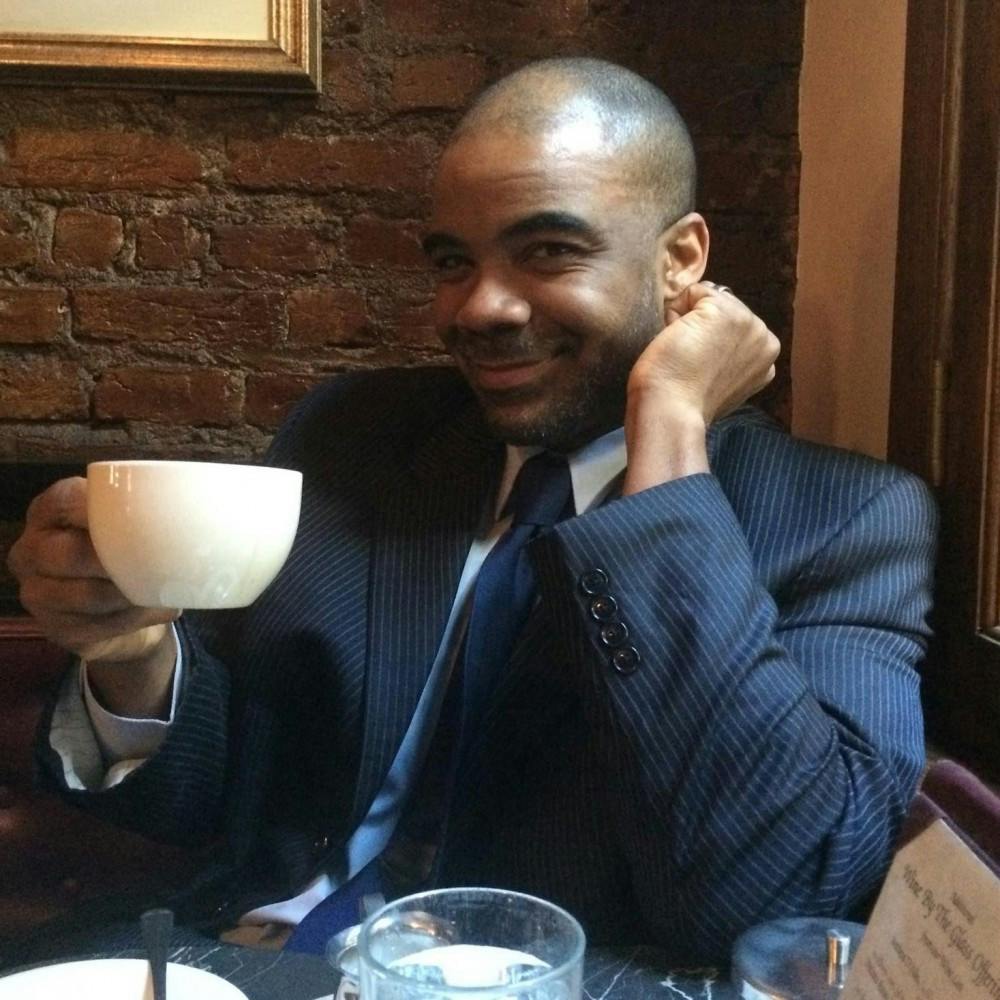Not unlike the enchanting Amelia Isaacs, who, though “very allergic to dairy,” covered a cake competition (the Sheridan Libraries’ fifth annual Edible Book Festival) for this section, I covered a conversation of Black Panther despite having never seen the film. Don’t get me wrong — I have not purposely avoided the highest-grossing film of 2018 for fear of ideological anaphylaxis. I really wish I had seen it, one reason being that doing so might have allowed me to appreciate this event even more.
On the evening of April 12 at Bird in Hand, N.D.B. Connolly, the Herbert Baxter Adams associate professor of History at Hopkins, kicked off the “Humanities in the Village” series, which is a collaboration between the Ivy Bookshop and the University’s Alexander Grass Humanities Institute (AGHI). In his discussion, Connolly examined the intellectual work that laid the first stones for Black Panther’s influence and acclaim and the work that it has subsequently inspired.
According to Connolly, the blockbuster’s most impressive statistic is that it inspired approximately 3,700 different written pieces from the likes of professors, journalists and sociologists. He described this phenomenon as a “flowering” of cultural studies.
During his talk Connolly explored the relationship between film and literature, between comic books and African-American history, and the evolution from imperialism and slavery to the drive for revolution and black nationalism — which is reflected in the existence of the fictional kingdom of Wakanda.
For instance, he argued that writer Ta-Nehisi Coates and artist Brian Stelfreeze’s comic book renewal of Blank Panther is a conversation between Edmund Morgan’s American Slavery, American Freedom and C. L. R. James’ The Black Jacobins on the themes of class conflict and labor struggles.
Connolly interpreted the problems of harvesting vibranium — the metal that facilitated Wakanda’s development of cutting-edge technology and supplied Black Panther with superhuman abilities — as a symbolization of the untapped potential of black people around the world.
“The political problem of black self-determination emanates through the film industry itself,” he said.
He invoked Cedric J. Robinson’s Forgeries of Memory and Meaning: Blacks and the Regimes of Race in American Theater and Film before World War II in order to stress the historical significance of Black Panther in juxtaposition with pernicious stereotypes of blacks, like blackface minstrelsy, that began with The Birth of the Nation.
Connolly noted that then-president Woodrow Wilson watched D.W. Griffith’s infamous film — whose release catalyzed the genesis of the second Ku Klux Klan — after a former Hopkins classmate of his, Thomas Dixon, Jr., made arrangements for its screening at the White House.
“In many instances, African-American actors are operating in these films under multiple registers, trying to subvert stereotypes as much as they’re trying to affirm white notions of superiority,” he said, referring to The Birth of a Nation.
Connolly explained that film producers, when attempting to stay true to the literature in their adaptations of comic books with minority characters, face the challenge of resurrecting the harmful stereotypes upon which their depictions often heavily rely.
He also addressed the critique of Chris Lebron, an associate professor of Philosophy at Hopkins, who criticized the sacrifice of Black Panther’s enemy Erik Killmonger as undermining black critiques of white supremacy. Connolly later called Killmonger a “proxy for the rest of the black world.”
Other reviewers have denounced Black Panther’s lack of sexual violence. Connolly told us that Coates explained to him in a conversation that this omission is, in part, attributable to corporate constraints on director Ryan Coogler.
Similarly, Connolly pointed out another one of the movie’s shortcomings: Despite having co-written a Black Panther spin-off comic book series for Marvel, Roxane Gay, author of Bad Feminist, was not invited to the film’s premiere. She and her renowned portrayal of queer love in Wakanda were “written out” of the movie.
Slavery was also written out. Connolly mentioned that, as examined in Steven Hahn’s A Nation Under our Feet: Black Political Struggles in the Rural South from Slavery to the Great Migration, slavery provoked not only rage but “political consciousness.”
Connolly posited that Hollywood did not name imperialism nor slavery — the “invisible white power” — and instead subtly referenced it through the use of passive voice constructions.
He explained that these omissions served to make the film more palatable for white viewers.
“The absence of slavery is a problem, it was intentional, it is part of what’s positive about the film,” he said.
Without even needing to read from, much less glance at, his notes, Connolly delivered an impressive and thoughtful analysis of the intellectual history behind Black Panther and the political climate in which it was received. He also engaged profoundly with questions and commentary from audience members. This event was truly an intellectual conversation, and this article is by no means a comprehensive review of it.





